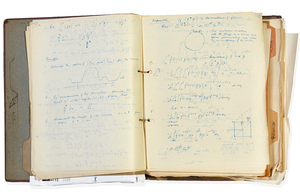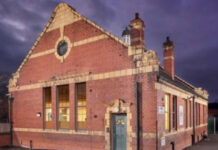Britain has stopped the export of rare wartime papers that once belonged to Alan Turing
An export bar has been placed on Turing’s unpublished papers relating to the “Delilah” project, which developed a portable encryption system for use in military operations.
Following Turing’s groundbreaking work on the Enigma machines at Bletchley Park, he began work on the ‘Delilah’ project at Hanslope Park to develop a portable encryption system or voice scrambler to protect military secrets in the field.
The papers consist of two bound notebooks and six separate gatherings of loose sheets. It comprises the notes of Alan Turing (1912-54) and Donald Bayley (1921-2020) relating to the World War Two project ‘Delilah’.
Unpublished evidence of Alan Turing’s work has rarely survived. Turing himself did not usually keep research notes, working drafts, or correspondence. This collection of papers dating from 1943 to 1945 sheds light on some of Turing’s most inventive, secret, and overlooked work.
Shortly after the Second World War ended in 1945, the Delilah machine was complete and Turing was able to demonstrate the working machine successfully, which showed a recording of one of Winston Churchill’s speeches, using a system which encrypted and decrypted communications from telephone and radio devices.
RCEWA Chair Andrew Hochhauser KC said:
The United Kingdom owes a debt of gratitude to Alan Turing. His extraordinary work on the Enigma project at Bletchley Park played a major part in winning World War Two and saved so many lives. Turing is closely connected to our modern digital world. He is generally accepted to be the founder of computer science and is also widely considered to be the father of Artificial Intelligence.







